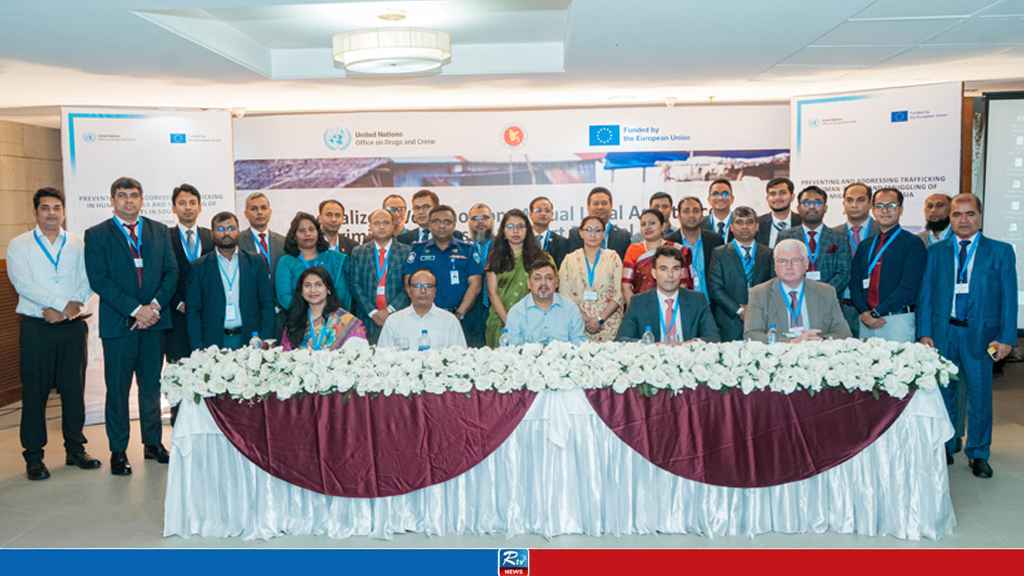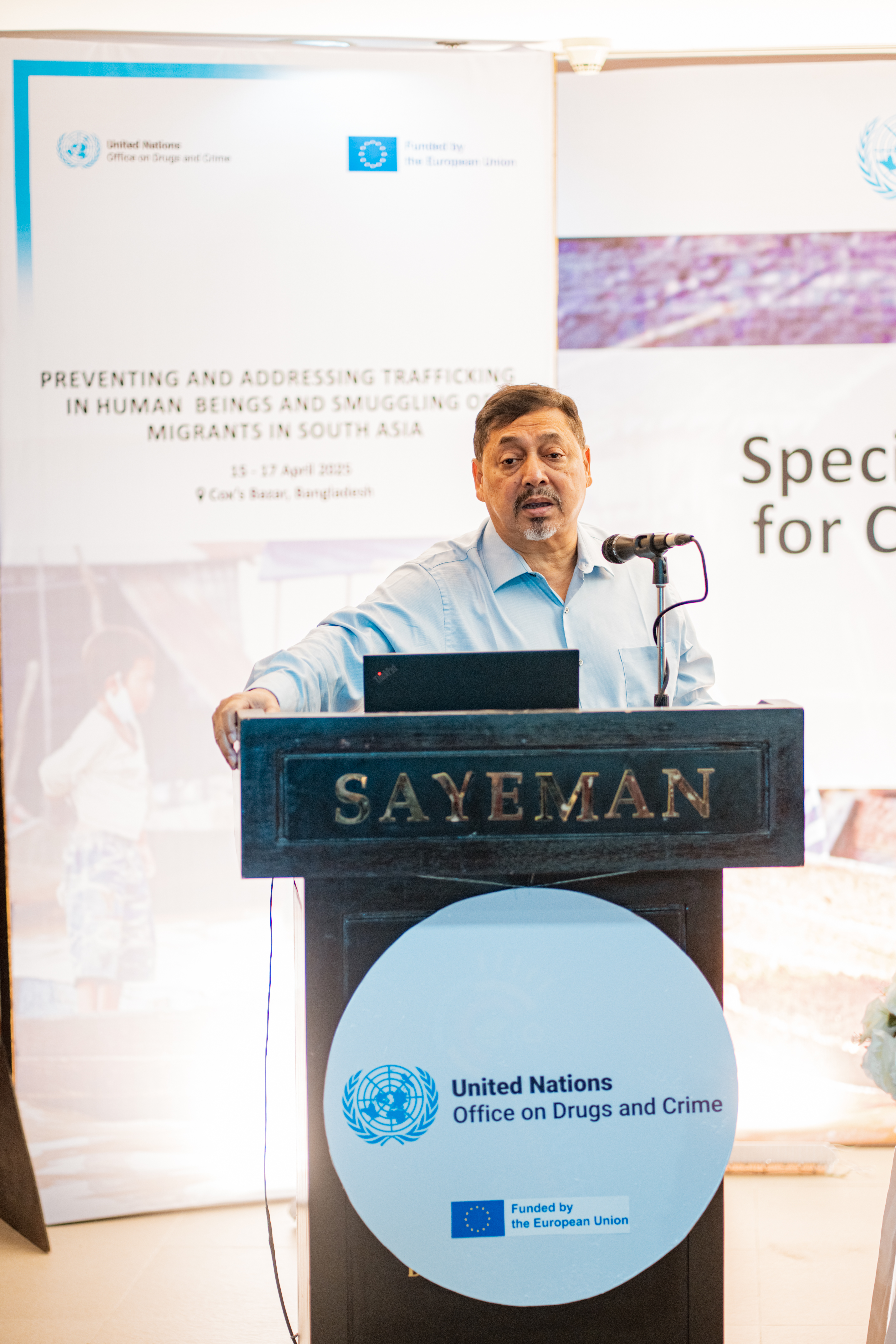National
Bangladesh Steps Up to Combat Transnational Crime
Wednesday, 16 April 2025 , 02:06 PM

In a strategic move to strengthen cross-border cooperation and enhance national capacity in tackling transnational organized crimes such as human trafficking and migrant smuggling, the Ministry of Home Affairs (MoHA) of Bangladesh launched yesterday a specialized workshop on "Mutual Legal Assistance for Criminal Matters to support parallel financial investigations and prosecutions into Trafficking in Persons" in Cox's Bazar.
This initiative is funded by the European Union (EU) under the regional project “Preventing and Addressing Trafficking in Human Beings and the Smuggling of Migrants in South Asia”, implemented by the United Nations Office on Drugs and Crime (UNODC).

Human trafficking is fundamentally profit-driven, with criminal networks generating vast sums in illicit proceeds annually. Following the money trail is an effective way to identify trafficking networks and secure convictions, and Mutual Legal Assistance (MLA) plays a critical role in obtaining evidence across jurisdictions, including banking records, witness testimonies, and asset freezing.
"Creating a robust institutional response and enabling effective MLA frameworks are essential for dismantling criminal networks and recovering illicit assets. Bangladesh remains committed to ensuring that perpetrators are brought to justice through international legal cooperation," said Nasimul Ghani, Senior Secretary of the Ministry of Home Affairs of Bangladesh, during the opening ceremony.
The three-day workshop, funded by the European Union (EU) under a regional project implemented by the United Nations Office on Drugs and Crime (UNODC), seeks to establish a national pool of MLA experts. This high-level training has brought together 25 senior officials from various sectors, including criminal justice, law enforcement, foreign affairs, and financial intelligence.
Key objectives
Key objectives of the workshop include strengthening international cooperation, specifically targeting financial investigations and prosecutions related to Trafficking in Persons (TIP) and Smuggling of Migrants (SOM). Officials emphasized the profit-driven nature of human trafficking and the critical role of MLA in obtaining evidence across jurisdictions to dismantle criminal networks and recover illicit assets.
Nasimul Ghani, Senior Secretary of MoHA, highlighted Bangladesh's commitment to ensuring perpetrators is brought to justice through international legal cooperation. Jurate Smalskyte Merville from the EU Delegation to Bangladesh underscored the EU's prioritization of international collaboration in combating human trafficking and expressed pride in partnering with Bangladesh. Dr. Suruchi Pant of UNODC emphasized the need for robust MLA systems to gather evidence across borders and follow financial trails.
The workshop is a significant step towards developing robust institutional mechanisms for mutual legal assistance and asset recovery in Bangladesh, ultimately aiming to increase conviction rates for human trafficking offenders and protect vulnerable individuals. The EU-funded project also covers Bhutan, Maldives, Nepal, and Sri Lanka, addressing cross-border cooperation challenges across the South Asian region.
